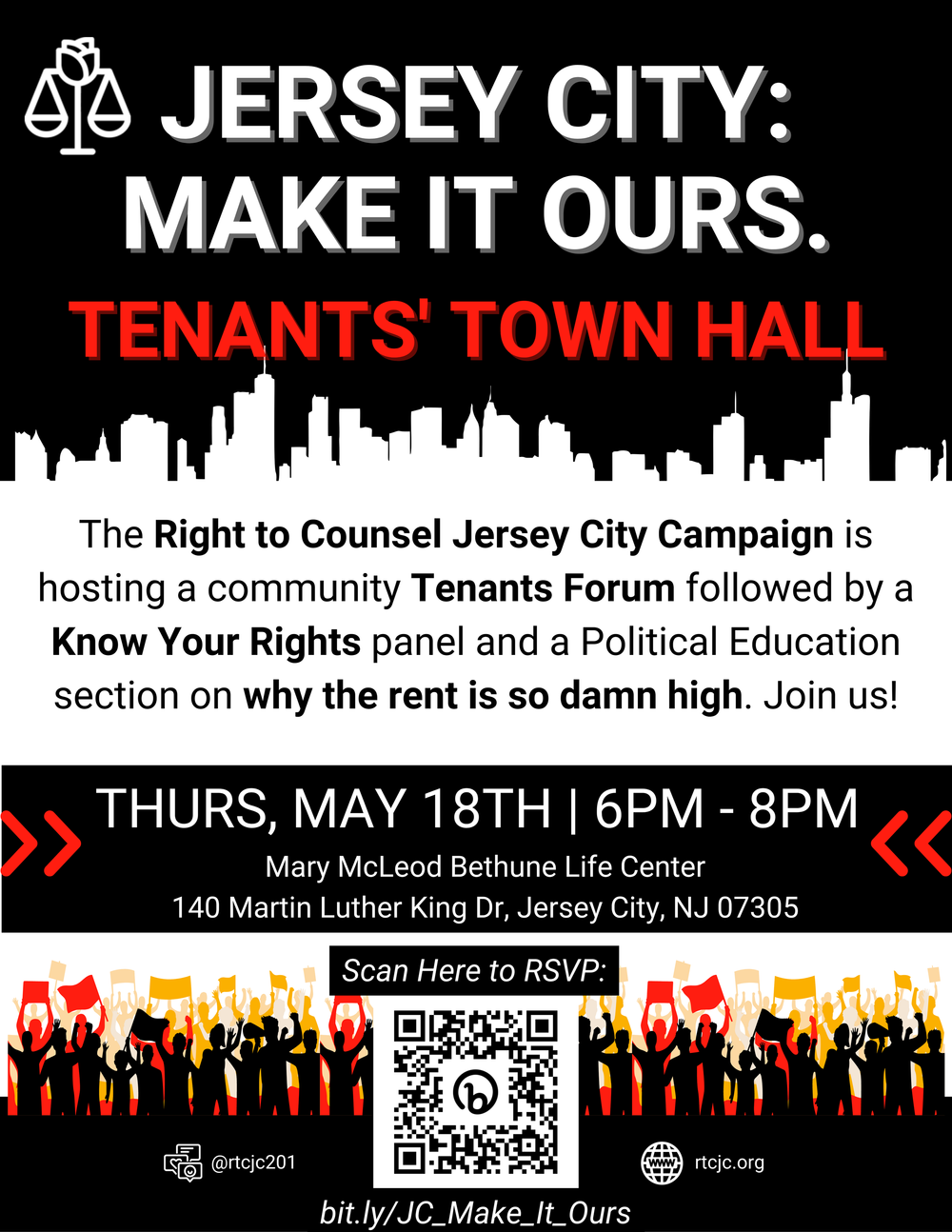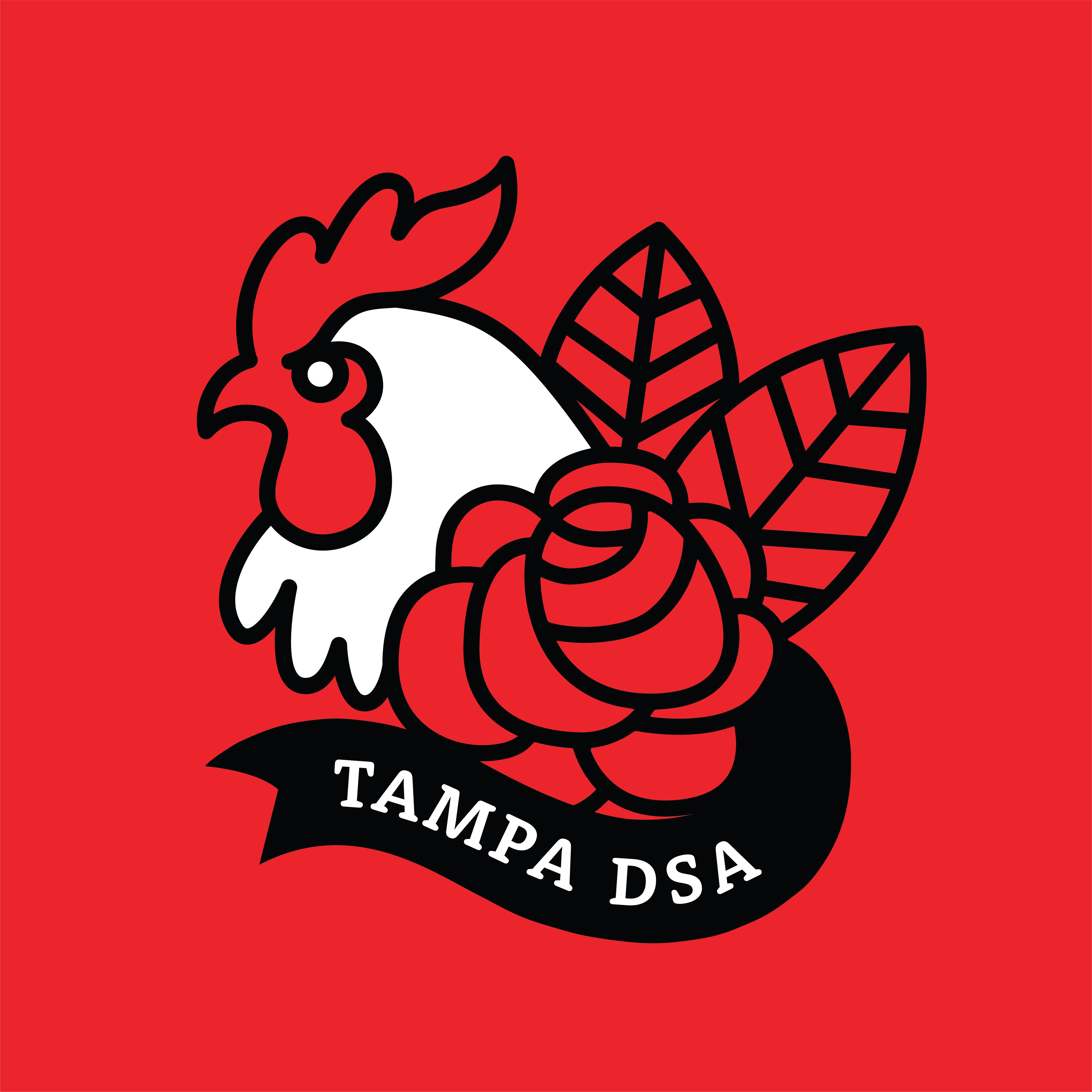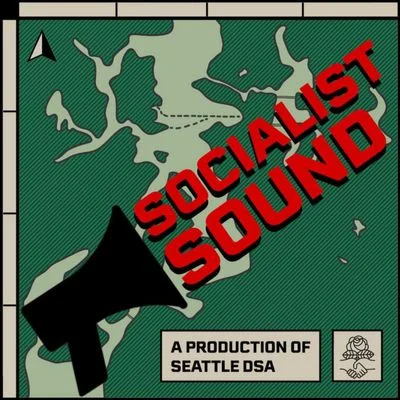

Come to Jersey City: Make It Ours - Tenants Town Hall
Join us on Thursday, May 18th at 6pm at the Bethune Life Center on MLK Dr., and learn about our campaign for Right-to-Counsel!



Justice for Jordan Neely
Two weeks ago, millions of New Yorkers were devastated and horrified to learn of the murder of Jordan Neely on the New York City subway. Neely, a young Black person and street artist experiencing homelessness, was held in a chokehold on the F train by a white man who remained unidentified for several days after the incident. In the weeks since Neely’s killing by the man identified as Long Island native Daniel Penny, the impact of this story has continued to unfold with reactions pouring in from across the city and country. While NYPD brutalized protestors and press at vigils and actions demanding justice for Jordan, Daniel Penny was allowed to turn himself in on a charge of second-degree manslaughter. On tonight's show we're live with Andrew, an organizer with NYC-DSA's Racial Justice Working Group, on how they have reacted to Jordan Neely’s murder and the socialist demands that we believe will make New York a truly safer place. We also hear from the WBAI listening audience with perspectives from the public on this story.
RSVP for NYC-DSA's Socialist Approach to Mental Health and Public Safety town hall event TONIGHT, 5/17, at bit.ly/nycdsa-townhall.
RSVP for NYC-DSA's Racial Justice Working Group Vigil and Teach-in for Jordan Neely on Saturday, May 27: https://actionnetwork.org/events/jordan-neely-deserved-better-a-vigil-teach-in
Follow the Racial Justice Working Group on Instagram or Twitter @nycdsarjwg.


People’s World: Right to Counsel: Jersey City tenants fight for free lawyers in eviction struggles
Article from People’s World published by campaign member Cameron O.!
“Right To Counsel JC is fighting to have the program run by an office in city hall and funded by fees on big new development projects. Such a program would be a strong enforcement mechanism, empowering tenants to help the city make sure housing laws are followed and buildings are up to code.”

Tampa DSA Strike Ready Resolution
Whereas: all 340,000 non-management UPS workers are covered by the International Brotherhood of Teamsters (IBT) and UPS Teamster members have been organizing escalating contract actions across the country as the contract fight heats up, and will need community support as they get closer to the August 1 deadline; and
Whereas: If they strike, they will need the whole labor movement behind them to show that when we fight, we win; and
Whereas: the Resolution #5 from the 2021 convention of the Democratic Socialist of America mandates the National Labor Commission engage DSA as a whole with labor work; and
Whereas: the Tampa Local Chapter of the Democratic Socialists of America stands in unwavering solidarity with workers and prioritizes the labor solidarity work,
Therefore be it resolved: that Tampa DSA will take the following steps to be STRIKE READY:
April 12th:
- The Chapter will publicly commit to the national Strike Ready campaign and supporting rank-and-file UPS Teamsters throughout the contract fight.
By May 13th:
- The Chapter will democratically choose two Solidarity Captains to liaise with the NLC for coordination on the national campaign to support the UPS Teamsters in their contract fight and ensure they are connected with the NLC and attending Labor Corps Solidarity Calls.
By June 30:
- The Chapter will have reviewed the Strike Ready 2023 Chapter Kit and familiarized members with key concepts of labor solidarity
- Ask chapter members to sign the Strike Ready Pledge.
- Identify chapter members to assist Solidarity Captains in local support with chapter listwork and map the local labor community as outlined in the Strike Ready Kit.
Throughout June and July :
- The Chapter will canvass their membership, local contacts and the community to build support for the UPS Teamsters by asking them to sign the Strike Ready Pledge.
- The Chapter will support escalating contract actions as announced by the IBT, local UPS Teamsters, and the National Labor Commission.
August 1: The Chapter will turn out members and community supporters to show up at the picket line or the contract ratification celebration.
After the fight: The Chapter will use the excitement generated by the contract fight to recruit chapter members to commit to the rank and file strategy and debrief on experience to prepare for future labor solidarity actions.
The post Tampa DSA Strike Ready Resolution appeared first on Tampa DSA.


Theology in the Capitalocene | Joerg Rieger, Jason Moore, Filipe Maia


Social Housing Victory in Seattle - Part 1
Seattle voters passed Initiative 135 in February, creating the only radically democratic, tenant-led, publicly-owned social housing developer in the country. I sat down with Tiffani McCoy, Co-Chair of House Our Neighbors, the coalition who led the fight. Then I interviewed two leaders of Seattle DSA, Sydney Province and Ramy Khalil, to get their perspective on the fight ahead to fully fund social housing in Seattle. Both interviews were excellent, but went long, so we split this into a two-parter. Subscribe to get an alert when Part 2 drops. Thanks to Luke Wigren and Charlie Spears for help recording, editing, and mixing this episode.


Raise the Wage Renton
I interviewed Julianna Dauble, president of the Renton Education Association, about the ballot initiative campaign her union and South Sound DSA members launched to raise the minimum wage in Renton to $19/hour. This first episode was produced in February as a prototype for Seattle DSA members as we considered whether or not to invest our Chapter's resources into producing a regular podcast. After three months of debate, in late April large majority voted to launch Socialist Sound as part of a wider plan to improve Seattle DSA's communications. While its dated and geared toward a specific audience, we thought it was well-worth sharing this prototype episode publicly. Thanks to Luke Wigren and Charlie Spears for help recording, editing, and mixing this episode.


Tucson DSA May General Meeting 🌹
|
|


Unite All Workers for Democracy in the UAW


Call/Email Your Council Member!
Our vote tracker has launched. Find out where your Jersey City Council rep stands on a Right to Counsel for ALL and use this script to get them to vote YES:
The Right to Counsel (RTC) would guarantee legal representation for all tenants facing eviction or other issues with landlords. NO tenant should have to fight for their homes alone!
**Calling Script**
Hello, my name is [your name] and I am calling to ensure [council member] is supporting the Jersey City Right-to-Counsel ordinance in its fullest capacity. Let’s make sure this includes universal coverage for all renters regardless of income!
Landlords and developers have accelerated the soaring rent costs that make Jersey City the most expensive city in the United States to live in. With [council member]'s support, residents will no longer fear facing eviction alone.
Can we count on your support to vote for a Right to Counsel for all tenants paid by developer fees?
**Send an Email**
Dear [council member],
My name is [your name] and I am calling to ensure [council member] is supporting the Jersey City Right-to-Counsel and Developer Fee ordinances in their fullest capacity. Let’s make sure this includes universal coverage for all renters regardless of income!
Landlords and developers have accelerated the soaring rent costs that make Jersey City the most expensive city in the United States to live in. Landlords more often than not have legal representation in housing court, tipping the scales in their favor. With [council member]'s support, residents will no longer fear facing eviction alone.
In nearby NYC, evictions were reduced by an estimated 30% after the passage of their Right to Counsel program. Let’s pass one of the strongest RTCs in the nation by making sure all tenants are protected from eviction, landlord malfeasance, habitability issues, illegally high rents, and more!
Can we count on your support to vote for a Right to Counsel for all tenants paid by developer fees?
Best,
[your name]


